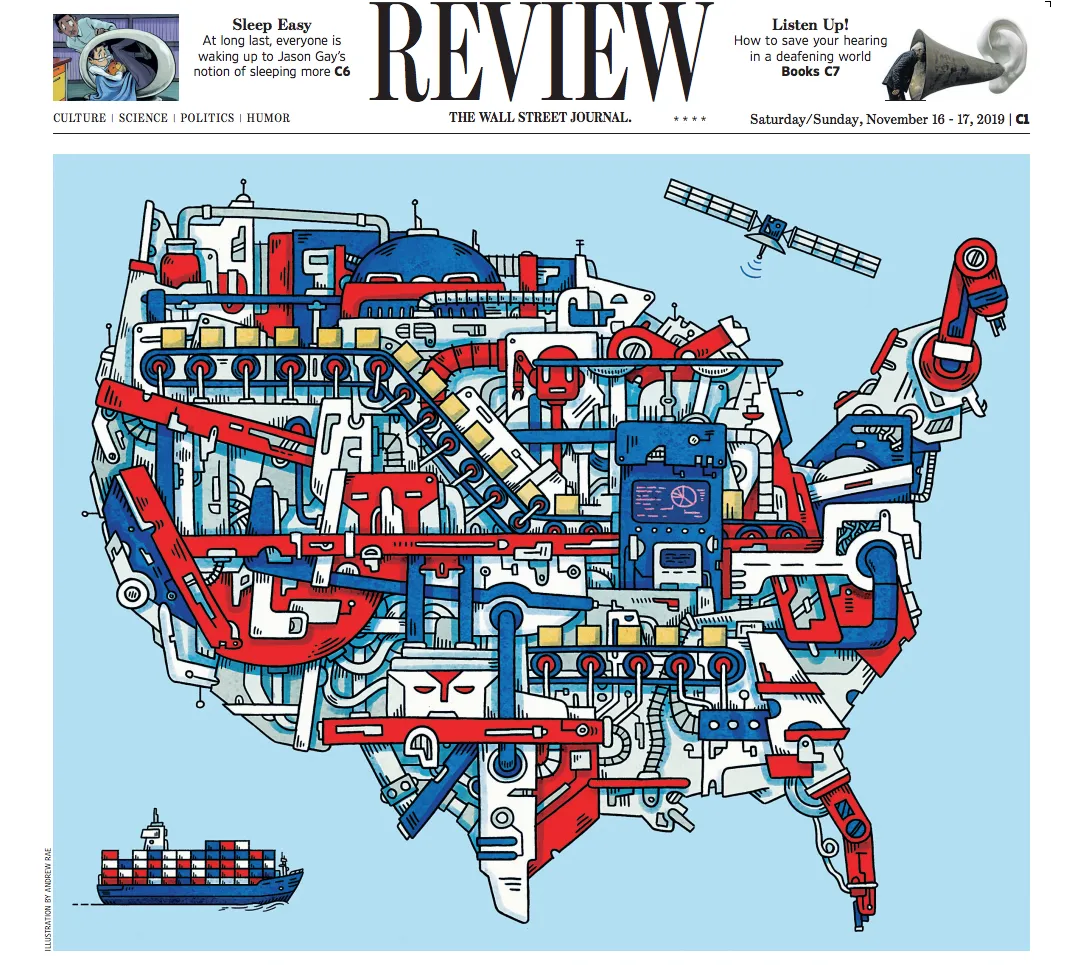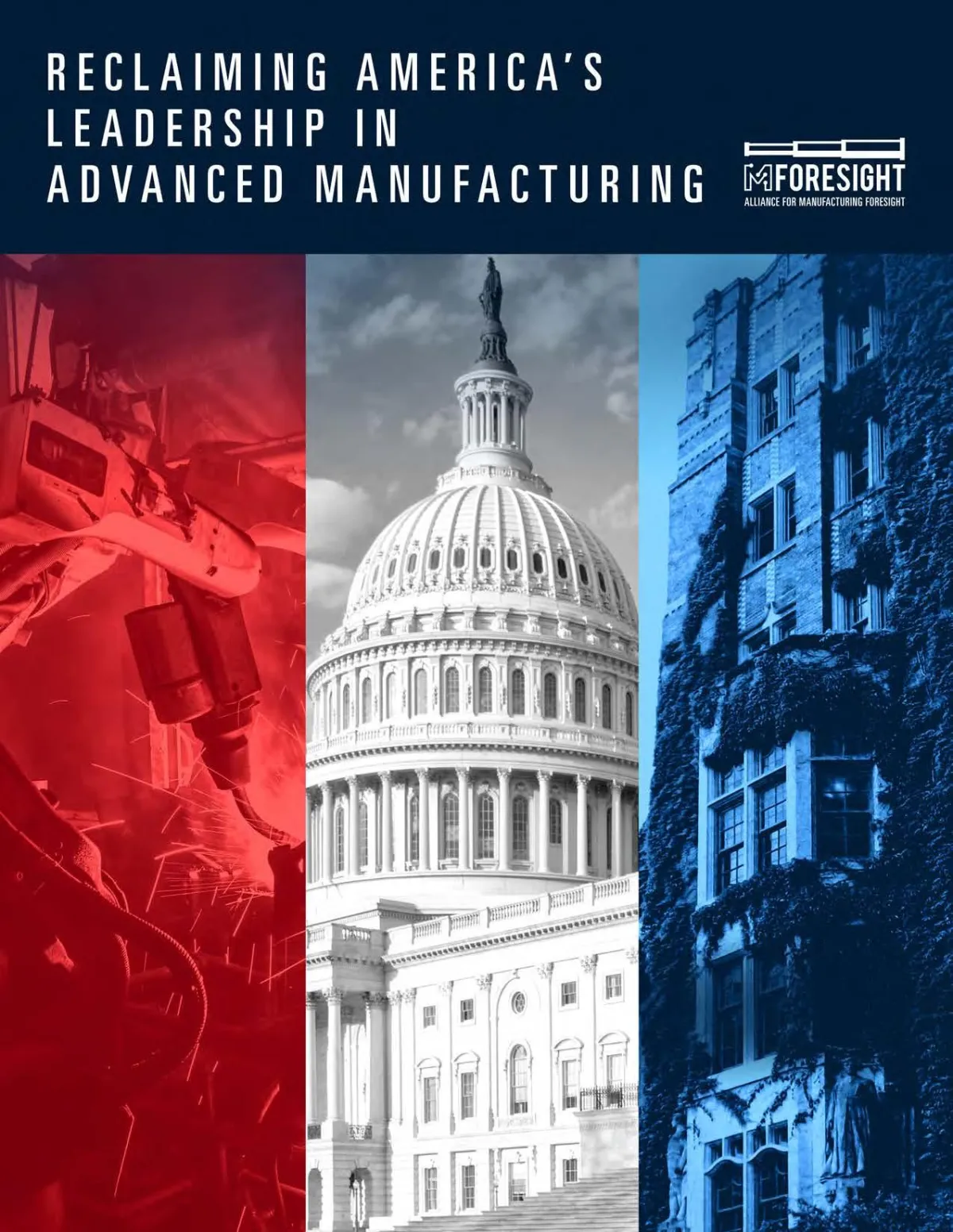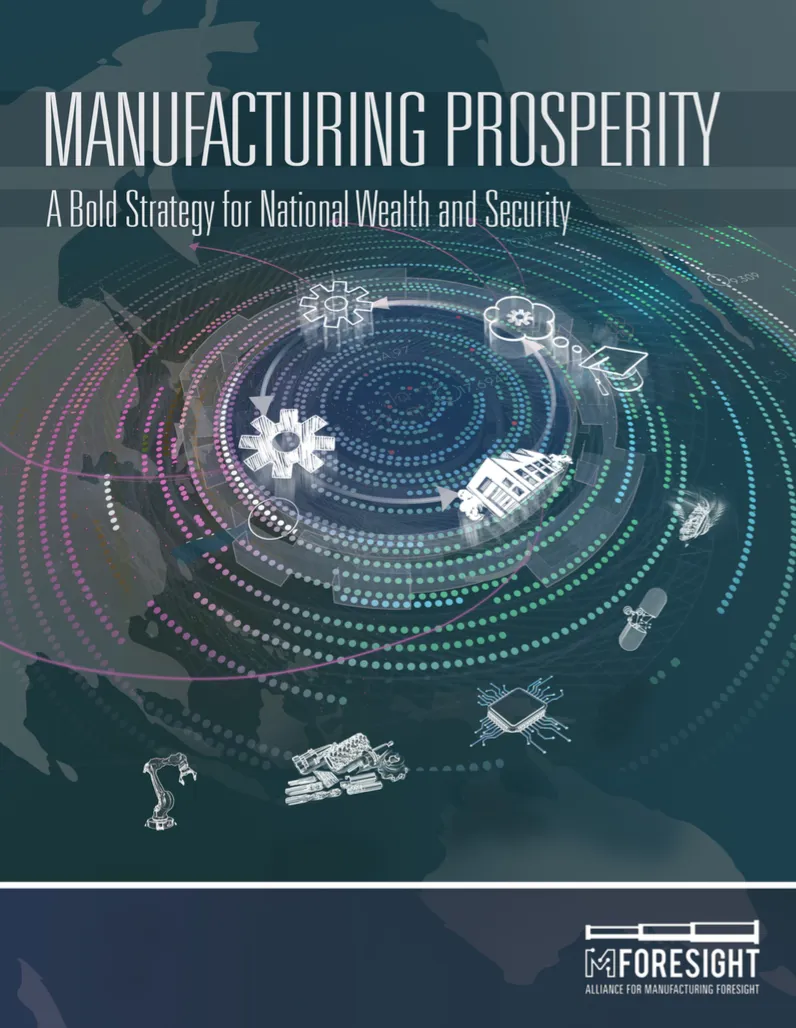ALLIANCE FOR
MANUFACTURING FORESIGHT
Engaging the U.S. manufacturing community to discover, prioritize, develop, and disseminate emerging technologies and manufacturing needs aligned with national priorities

About us
MForesight: Alliance for Manufacturing Foresight
was established in 2015 at the University of Michigan to advise the federal government and the nation’s manufacturing community on emerging technologies, skill requirements, trade, and other factors affecting long-term U.S. manufacturing competitiveness. After funding lapsed in 2020, MForesight was no longer able to provide the timely analysis, technology assessments, and actionable policy recommendations found in multiple reports. Because much of this information continues to be relevant, this website serves as a repository for MForesight’s publications, available for free download.
Our focus includes:
Research and Development Priorities
Implementation Challenges
Technology Policy Issues
Featured Articles
Explore Our Archive of Manufacturing Foresight

WALL STREET JOURNAL WEEKEND ESSAY “INNOVATION SHOULD BE MADE IN THE U.S.A.”
Innovation Should Be Made in the U.S.A.
Offshoring by American companies has destroyed our manufacturing base and our capacity to develop new products and processes. It’s time for a national industrial policy.
In 1987, as the Reagan administration was nearing its end, the economists Stephen S. Cohen and John Zysman issued a prophetic warning: “If high-tech is to sustain a scale of activity sufficient to matter to the prosperity of our economy…America must control the production of those high-tech products it invents and designs.” Production, they continued, is “where the lion’s share of the value added is realized.”
Amid the offshoring frenzy that began in the late 1980s, this was heterodox thinking. In many quarters, it still is. Even as trade tensions with China have deepened, many U.S. political and economic leaders continue to believe that offshoring is not only profitable but also sound national economic strategy. Manufacturing in China is cheaper, quicker and more flexible, they argue. With China’s networks of suppliers, engineers and production experts growing larger and more sophisticated, many believe that locating production there is a better bet in terms of quality and efficiency. Instead of manufacturing domestically, the thinking goes, U.S. firms should focus on higher-value work: “innovate here, manufacture there.”
READ MORE
Manufacturing Community News
Community Events and Initiatives

WALL STREET JOURNAL WEEKEND ESSAY “INNOVATION SHOULD BE MADE IN THE U.S.A.”
Innovation Should Be Made in the U.S.A.
Offshoring by American companies has destroyed our manufacturing base and our capacity to develop new products and processes. It’s time for a national industrial policy.
In 1987, as the Reagan administration was nearing its end, the economists Stephen S. Cohen and John Zysman issued a prophetic warning: “If high-tech is to sustain a scale of activity sufficient to matter to the prosperity of our economy…America must control the production of those high-tech products it invents and designs.” Production, they continued, is “where the lion’s share of the value added is realized.”
Amid the offshoring frenzy that began in the late 1980s, this was heterodox thinking. In many quarters, it still is. Even as trade tensions with China have deepened, many U.S. political and economic leaders continue to believe that offshoring is not only profitable but also sound national economic strategy. Manufacturing in China is cheaper, quicker and more flexible, they argue. With China’s networks of suppliers, engineers and production experts growing larger and more sophisticated, many believe that locating production there is a better bet in terms of quality and efficiency. Instead of manufacturing domestically, the thinking goes, U.S. firms should focus on higher-value work: “innovate here, manufacture there.”
READ MORE
MForesight’s work was supported by the National Science Foundation from 2015 to 2020 under Grant No. 1552534 to the University of Michigan (Dr. Sridhar Kota).
Please note that any opinions, findings, and conclusions or recommendations expressed on this website do not necessarily reflect the views of the National Science Foundation or the University of Michigan.





